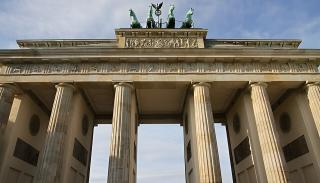
Breadcrumbs navigation
Adaptive politics, or countering the myth of German transformation after 1945
In this short video extract, Laura Jung discusses the key arguments from her new Review of International Studies article - Adaptive politics, or countering the myth of German transformation after 1945
Want to know more? You can read the full article at DOI: https://doi.org/10.1017/S0260210524000883
BISA members receive access to RIS (and to our other journal European Journal of International Security) as a benefit of membership. To gain access, log in to your BISA account and scroll down to the 'Membership benefits' section. If you're not yet a member join today.
Abstract
International Relations (IR) accounts of the post–World War II international order often claim that after its defeat, Germany ‘transformed’ from a fascist, militaristic, and racist state into a model liberal democracy, facilitating its full rehabilitation and integration into Western institutions and alliances. Yet a closer examination of post-war German domestic and international politics challenges this account: denazification was widely reviled, survivors faced ongoing persecution, and a retooled antisemitism asserted itself in international diplomacy. This article offers the concept of adaptive politics to capture how collectively held beliefs, identities, policies, and conduct travel across incisive political events like defeat in war, occupation, and genocide, outlining the complex concurrence of continuity, adaptation, and change in their aftermath. Drawing on theories of sovereignty, biopolitics, racism, and antisemitism, the article tracks the unfolding of West German adaptive politics in the immediate post-war period, focusing on efforts to exonerate perpetrators, modifications of racism and antisemitism, and the role of the trauma diagnosis in debilitating survivors. By sanitising this history, IR scholarship positions the post-war liberal international order, and the international politics of the West more broadly, as entirely disconnected from the disordered conduct associated with Nazism.
Photography by Gerd Eichmann via Wikimedia Commons | Creative Commons Attribution-Share Alike 4.0 license


